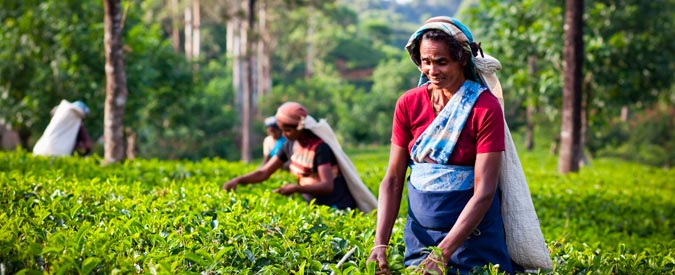
Preparing for the COP21 in Paris – Women and Climate Change Mitigation
At the twenty-first Conference of Parties to the UN discussions will focus on the role of women in projects undertaken in developing countries for climate change mitigation.
The International Fund for Agricultural Development of the United Nations (IFAD) initiated a program in 2012 for the dissemination of a new system for the production of biological methane gas: the Flexi Biogas System (FBS). The term ‘biogas’ refers to the product resulting from the natural fermentation of liquid animal manure and other organic substances obtained from agricultural activities. Traditional systems for the production of this renewable energy source provide for a series of underground, concrete, watertight tanks. However, the costs involved in the creation of these structures are high and therefore unrealistic in the case of a developing country. On the contrary, FBS methodology provides for a portable system which basically consists of a large plastic bag filled with organic compounds covered by a simple ‘greenhouse tunnel’. The system facilitates fermentation thanks to the accumulation of heat. A simple piping system is installed for the collection of gas and its transportation to domestic cookers. The system contributes towards the independence of agricultural areas and small farms in terms of their energy sources, while reducing the release of carbon dioxide into the atmosphere.
Reducing the emission of greenhouse gases is the fundamental objective for Climate Mitigation programs, which will represent one of the most important issues to be discussed at the COP 21 session to be held in Paris. At present, in all their daily activities two and a half billion people use traditional energy sources, such as firewood and coal, and more than 80% of them live in sub-Saharan Africa or South-East Asia. Besides contributing to the reduction of greenhouse gases, access to renewable energy sources offers a real possibility of improving the economic conditions and the life of these populations in general, particularly for women and children.
The main beneficiaries of the Flexi Biogas System project are in fact women, traditionally made responsible for every aspect of domestic life. They are the ones who cover long distances on foot every day, first of all to find firewood and then to carry it back to the village, and this is a task that is added to their participation in agricultural activities. Besides these duties they are the ones who obviously always take care of children, starting from the preparation of meals, which takes several hours and during which they remain exposed to combustion fumes. All of these activities have a heavy impact on their health and the well-being of the family.
The Flexi Biogas System has brought a substantial change. Making families independent with respect to the supply of energy, women no longer have to resort to firewood as a domestic fuel. Preparing meals takes less time and they avoid exposure to fumes. We should also mention that in addition to energy the FBS system provides a natural fertilizer of good quality as an alternative to expensive chemical fertilizers.
The project has been carried out as a part of Climate Change Mitigation initiatives at the national level in Rwanda, Kenya, India and in the state of São Tomé and Príncipe. Three years following its introduction, the results are promising. Apart from evident positive effects at the economic and environmental levels, it is ascertained that there has been a decrease in respiratory diseases and an increase in agricultural production, which has ensured greater food security. In some cases women have been able to become involved in other activities, taking a more active part in community life or even starting small business activities which increase the family income. The expectation is that in the long run greater gender equity may be achieved in both the distribution of workloads and in the sharing of collective choices.
Chiara Soletti
Published for Italian Climate Network on the association’s website.
